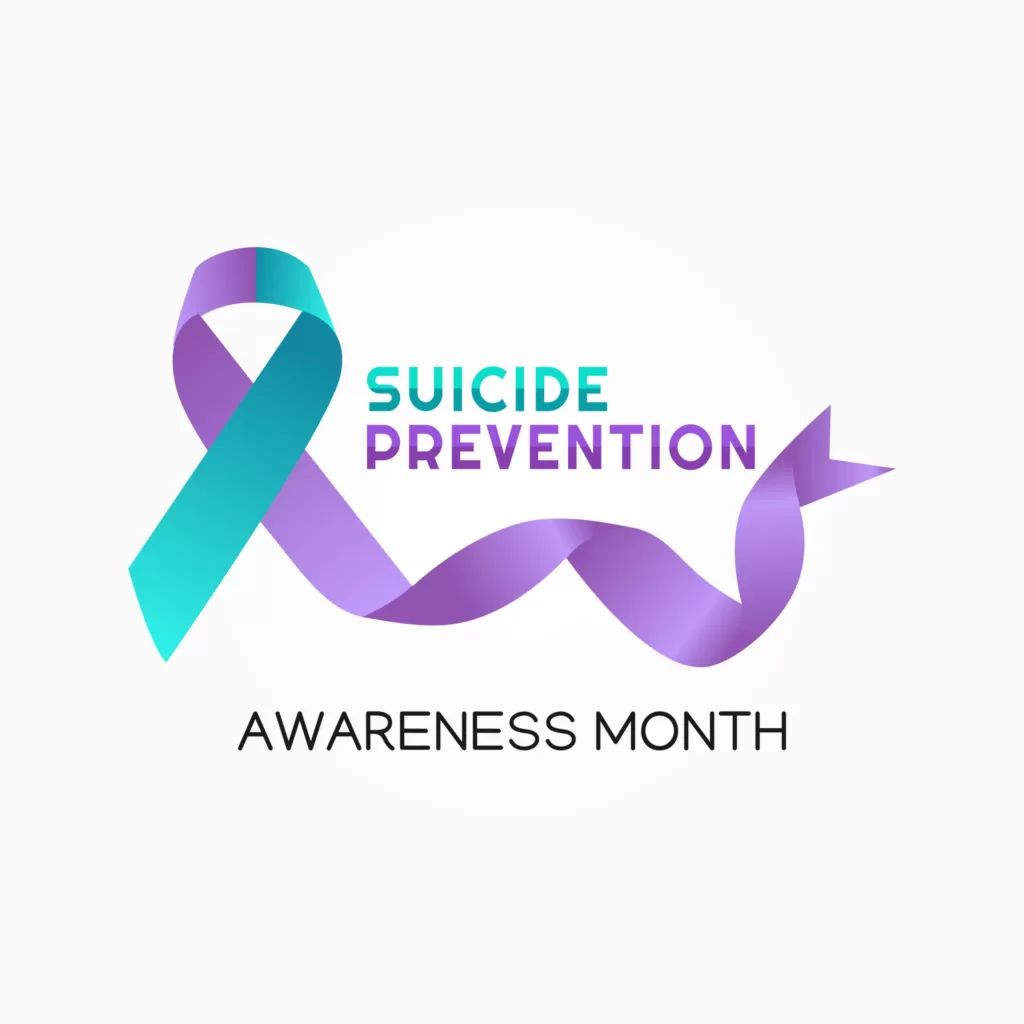Suicide Prevention Awareness Month

In 2020, suicide was the 12th leading cause of death overall in the US, claiming the lives of over 45,900 people (National Institute of Mental Health). The topic of suicide is complicated and very tragic; however, it is also preventable. September is Suicide Prevention month and we want to share some resources and warning signs to help you and your loved ones.
Here are some warning signs that someone may be at immediate risk for attempting suicide (NIMH):
- Talking about wanting to die or wanting to kill themselves
- Talking about feeling empty or hopeless or having no reason to live
- Feeling unbearable emotional or physical pain
- Talking about being a burden to others
- Withdrawing and isolating from family and friends
- Giving away important possessions
- Putting affairs in order, such as making a will
- Talking or thinking about death often
- Taking great risks that could lead to death, such as driving extremely fast
- Making a plan or looking for ways to kill themselves (such as searching for lethal methods, buying a gun, stockpiling pills)
- Using substances and alcohol more often
Suicidal thoughts or actions are a sign of extreme distress and should not be ignored. We encourage you to help someone in emotional pain and take these 5 steps to help (NIMH):
- Ask: “Are you thinking about killing yourself?” We know this is not an easy question, but studies show that asking at-risk individuals if they are suicidal does not increase suicides or suicidal thoughts.
- Keep them safe: Reducing a suicidal person’s access to highly lethal items or places is an important part of suicide prevention. Asking if the at-risk person has a plan and removing or disabling the lethal means can make a difference.
- Be there: Listen empathically and learn what the person is thinking and feeling. Research suggests that acknowledging and talking about suicide may reduce rather than increase suicidal thoughts.
- Help them connect: Provide crisis lines to the at-risk individual and save them on your phone so they’re there when you need them. You can also help make a connection with a trusted individual like a family member, friend, or mental health professional.
- Stay connected: Staying in touch after a crisis or after being discharged from care can make a difference. Studies have shown the number of suicide deaths goes down when someone follows up with the at-risk person.
Korean-Speaking Crisis Resources:
- Call 119 immediately
- Call Korea’s Suicide Prevention Hotline: 1393
- Call Lifeline Korea which offers 24-hour telephone services: 1588-9191
- Counsel24 provides 24-hour counseling and mental health support: 1588-2525
English-Speaking Crisis Resources (international calling rates may apply):
- Call the Suicide Lifeline at 1-800-273-TALK (8255) or 0808-555-118 (Toll Free from Korea)
- Call Samaritans Hope’s 24/7 Helpline at 1-877-870-4673
- Call the Suicide Lifeline at 1-800-273-8255
- Veteran’s Crisis Line Chat

